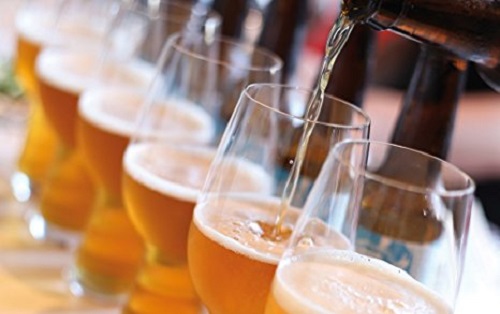
AB InBev said it will start distributing its flagship Budweiser brand in South Africa this year and introduce an alcoholfree version of SABMiller’s Castle brand. Castle Lite, South Africa’s biggest selling lager, remains popular, Tadeu said. Meanwhile, AB InBev latest financial performance shows that the company recorded an increase in net profit for the fourth quarter to US$3.04 billion, compared with US$400 million a year earlier, when the company was hit by an increase in the cost of debt related to the SABMiller deal.
Revenue rose to US$14.60 billion from $14.20 billion.
The company said among its major brands, global revenue from Budweiser grew 4.1% in 2017, while Stella Artois and Corona posted gains of 13% and 20%, respectively, during the same period under review.
Competition
The company’s plant upgrades in Uganda comes as Nile Breweries Ltd’s main rival Uganda Breweries Ltd doubled its production capacity to 140 million litres in 2010 following the expansion of the Port Bell-based beer plant at a cost of US$20 million. Uganda Breweries Ltd is a subsidiary of regional brewing giant East African Breweries Ltd, owned by the Londonbased Diageo.
Industry executives say the projected growth in the economy coupled with the growing population in the country are driving consumers to trade up from cheap informal alcohol to commercially branded brews, a trend that is likely to continue for the foreseeable future as the economy expands and consumers become more affluent. Data from Bank of Uganda shows that the country’s economy is projected to grow in the region of 6.5%, higher than the average of 4.5% recorded in the past six years.
And though Uganda’s average per capita beer consumption is still relatively low at around 10 litres per year, compared with around 12.4 litres in South Africa, it has been ranked as being among the highest alcohol consuming countries in the world, largely due to non-branded brews by the World Health Organisation.
Taxes on beer
Kamphuis said the proposed excise duty of up to 30% or Shs230 on every litre of opaque beer such as Chibuku is expected to push its price upwards.
“In anticipation of the tax, we have taken up the price from the recommended retail price of Shs1, 000 to Shs1, 200 and the volume effect has been devastating,” he said.
“Our volumes are less than a half (and) so if we have to take it up one more time, the volumes will disappear and the product will have to leave the market.”
Nile Breweries Limited in 2013 introduced Chibuku, a modern but traditional low cost beer brewed out of maize, sorghum and yeast.
However, court is yet to determine whether Chibuku is a local beer or not, according to Ian Rumanyika, the manager for public and corporate affairs at the Uganda Revenue Authority.
Going forward, Nile Breweries Limited’s Commercial Director, Isaac Sekasi, told The Independent that the company is planning to introduce five new beer brands on the Ugandan market as it seeks to strengthen its market share.
“At the same time, we also plan to phase out some of the poor performing brands,” he said, without naming the brands.
 The Independent Uganda: You get the Truth we Pay the Price
The Independent Uganda: You get the Truth we Pay the Price





